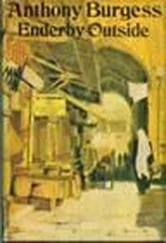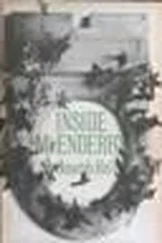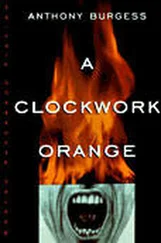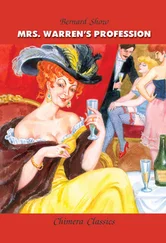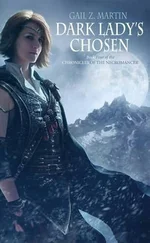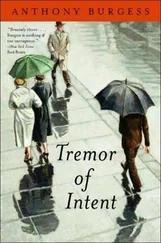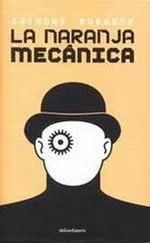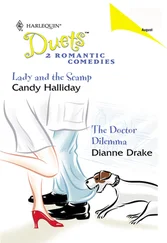"We have to check up on history," Paley said, mumbling a little. His own quest seemed piddling: all this machinery, organization, expertise in the service of a rather mean inquiry. "I have to know whether William Shakespeare really wrote those plays."
Swenson, as Paley expected, snorted. "A nice sort of thing to want to find out," he said. "He's been dead six hundred and fifty years, is it, and you want to prove that there's nothing to celebrate. Not," he added, "that that sort of thing is much in my line. I've never had much time for poetry. Aaaah." He interposed his own head between Paley's and the screen, peering. The pages of the atlas had been turned; now Europe alone swam towards them. "Now," Swenson said, "I must set the exactest course of all." He worked at dials, frowning but humming happily, then beetled at Paley, saying: "Oughtn't you to be getting ready?"
Paley blushed that, with so huge a swathe of the cosmos spent in near idleness, he should have to rush things as they approached their port. He took off his single boilersuit of a garment and drew from the locker his Elizabethan fancy dress. Shirt, trunks, codpiece, doublet, feathered French hat, slashed shoes – clothes of synthetic cloth that was an exact simulacrum of old-time weaving, the shoes of good leather handmade. And then there was the scrip with its false bottom: hidden therein was a tiny two-way signaller. Not that, if he got into difficulties, it would be of much use: Swenson was (and these were strict orders) to come back for him in a year's time. The signaller was to show where he was and that he was still there, a guest of the past, really a stowaway. Swenson had to move on yet farther into timespace: Professor Shimmins had to be picked up in FH78, Dr Guan Moh Chan in G210, Paley collected on the way back. Paley tested the signaller, then checked the open and honest contents of his scrip: chief among these was a collection of the works of William Shakespeare. The plays had been copied from a facsimile of the First Folio in fairly accurate Elizabethan script; the paper too was an acid-free imitation of the coarse stuff Elizabethan dramatists had been said to use. For the rest, Paley had powdered prophylactics in little bags and, most important, gold – angels firenew, the odd portague, écus.
"Well," Swenson said with the faintest tinge of excitement, " England, here we come." Paley looked down on familiar river shapes – Tees, Humber, Thames. He gulped, running through his drill swiftly. "Countdown starts now," Swenson said. A syntheglott in the port bulkhead began ticking off cold seconds from 300. "I'd better say goodbye then," Paley gulped, opening the trap in the deck which led to the tiny jetpowered very-much-one-man aircraft. "You should come down in the Thames estuary," Swenson said. "Au revoir, not goodbye. I hope you prove whatever it is you want to prove." 200 – 199 – 198. Paley went down, settled himself in the seat, checked the simple controls. Waiting took, it seemed, an age. He smiled wryly, seeing himself, an Elizabethan, with his hands on the controls of a twenty-third century miniature jet aircraft. 60 – 59 – 58. He checked his Elizabethan vowels. He went over his fictitious provenance: a young man from Norwich with stage ambitions ("I have writ a play and a goodly one"). The syntheglott, booming here in the small cabin, counted to its limit. 4 – 3 – 2 – 1.
Zero. Paley zeroed out of the mothership, suddenly calm, then elated. It was moonlight, the green countryside slept. The river was a glory of silver. His course had been preset by Swenson; the control available to him was limited, but he came down smoothly on the water. What he had to do now was ease himself to the shore. The little engine purred as he steered in moonlight. The river was broad here, so that he seemed to be in a world all water and sky. The moon was odd, bigger than it should by rights have been, with straight markings like fabled Martian canals. The shore neared – it was all trees, sedge, thicket; there was no sign of habitation, not even of another craft. What would another craft have thought, sighting him?
He had no fears about that: with its wings folded, the little airboat looked, from a distance, like some nondescript barge, so well had it been camouflaged. And now, to be safe, he had to hide it, cover it with elmboughs and sedge greenery. But first, before disembarking, he must set the timeswitch that would, when he was safe ashore, render the metal of the fuselage high-charged, lethally repellent of all would-be boarders. It was a pity, but there it was. It would switch off automatically in a year's time, in twelve months to a day. Meanwhile, what myths, what madness would the curious examiner, the chance finder generate, tales uncredited by sophisticated London.
Launched on his night's walk upriver, Paley found the going easy enough. The moon lighted fieldpaths, stiles. Here and there a small farmhouse slept. Once he thought he heard a distant whistled tune. Once he thought he heard a distant town clock strike. He had no idea of the month or day or time of the night, but he guessed that it was late spring and some three hours or so off dawn. The year 1595 was certain, according to Swenson. Time functioned here as on true Earth, and two years before Swenson had taken a man to Muscovy, where they computed according to the Christian calendar, and the year had been 1593. That man had never come back, eaten by bears or something. Paley, walking, found the air gave good rich breathing, but from time to time he was made uneasy by the unfamiliar configurations of the heavens. There was Cassiopeia's Chair, Shakespeare's first name's drunken initial, but there were constellations he had not seen before. Could the stars, as the Elizabethans themselves believed, modify history? Could this Elizabethan London, because it looked up at stars unknown on true Earth, be identical with that other one which was known only from books? Well, he would soon know.
London did not burst upon him, a monster of grey stone and black and white wood. It came upon him gradually and gently, houses set in fields and amid trees, the cool suburbs of the wealthy. And then, a muffled trumpet under the sinking moon, the Tower and its sleeping ravens. Then came the crammed crooked houses, all at rest. Paley breathed in the smell of this late spring London, and he did not like what he smelled. It was a complex of old rags and fat and dirt, but it was also a smell he knew from a time when he had flipped over to Borneo and timidly touched the periphery of the jungle: it was, somehow, a jungle smell. As if to corroborate this, a howl arose in the distance, but it was a dog's howl. Dogs, dogges, man's best friend, here in outer space; dog howling to dog across the inconceivable vastness of the cosmos. And then came a human voice and the sound of boots on cobbles. "Four of the clock and a fine morning." He instinctively flattened himself in an alleyway, crucified against the dampish wall. The time for his disclosure was not yet. He tasted the vowel sounds of the bellman's call – nearer to the English of Dublin than of his own London. "Fowr vth cluck." And then, knowing the hour at last and automatically feeling for a stopped wristwatch that was not there, he wondered what he should do till day started. Here were no hotels with clerks on allnight duty. He tugged at his dark beard (a three months' growth) and then decided that, as the sooner he started on his scholar's quest the better, he would walk to Shoreditch where the Theatre was. Outside the City's boundaries, where the play-hating City Council could not reach, it was at this time, so history said, a new and handsome structure. A scholar's zest, the itch to know, came over him and made him forget the cold morning wind that was rising. His knowledge of the London of his own day gave him little help in the orientation of the streets. He walked north – the Minories, Houndsditch, Bishopsgate – and, as he walked, he retched once or twice involuntarily at the stench from the kennel. There was a bigger, richer, filthier, obscener smell beyond this, and this he thought must come from Fleet Ditch. He dug into his scrip and produced a pinch of powder; this he placed on his tongue to quieten his stomach.
Читать дальше

